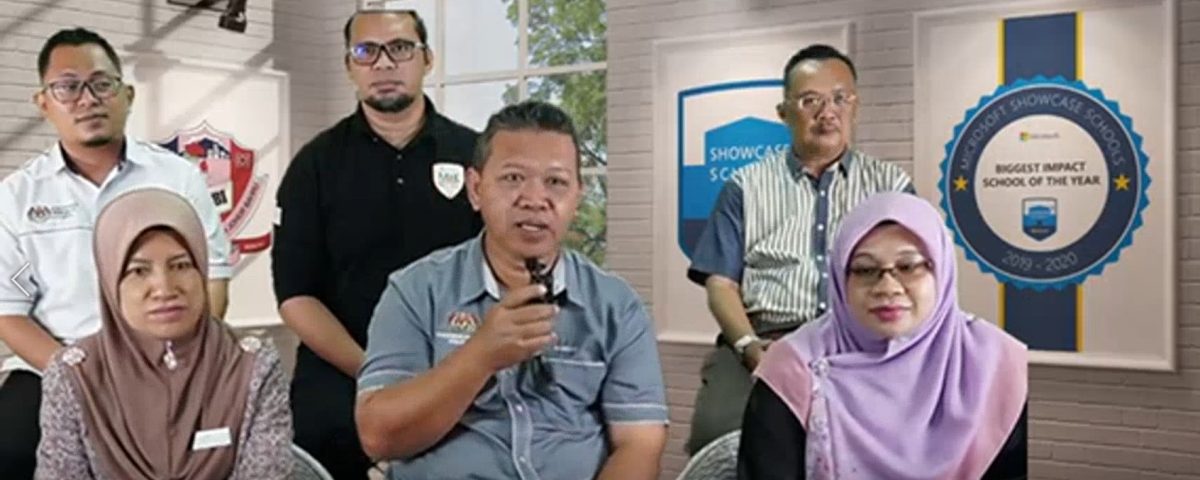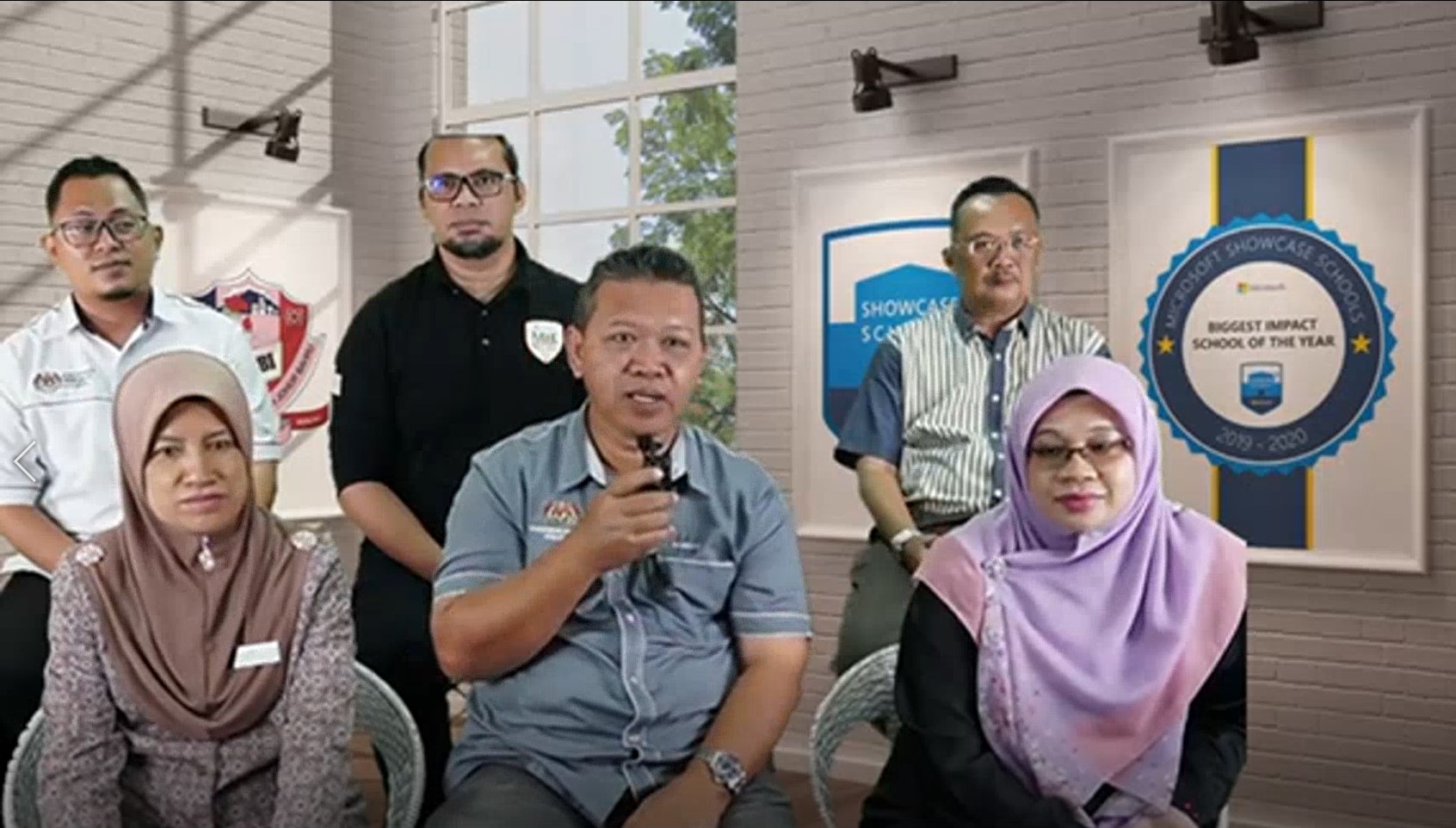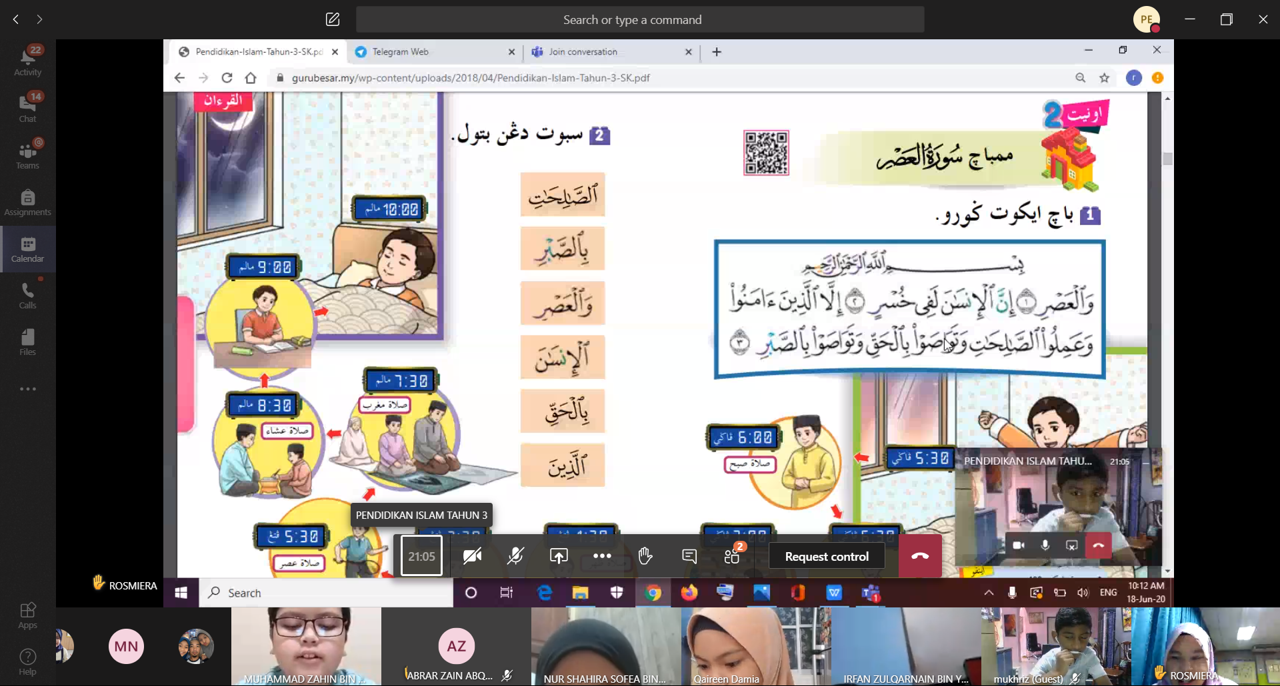
Threat Roundup for February 5 to February 12
February 14, 2021
Democratizing Threat Hunting: How to Make it Happen for Everyone
February 16, 2021Microsoft Showcase School award recipient from Johor reimagines the future of education

Last year, Sekolah Kebangsaan Taman Bukit Indah (SKTBI), made Malaysia proud when the school was named as one of the three schools in the world to receive the “Biggest Impact School of The Year 2019-2020 for Microsoft Showcase School” award. They were also the only school in Asia to receive this award, edging out 325 education institutions from 58 countries around the world.
We spoke with their teachers, to learn more about their efforts in encouraging digital learning as they reimagine the future of education.

Congratulations on your win! How did you react to the news?
Rasman: I had to switch off my phone when the news started to spread. I was receiving too many calls and messages from my friends and colleagues (laughs)!
It is very humbling and heartwarming to see our peers reaching out to us, wanting to learn more about how they can also participate in this digital revolution. It also motivates us to keep doing what we do, with the Ministry of Education through their local representatives expressing their support and congratulating our efforts.
Were there any challenges during the early stages when schools were closed because of COVID-19?
Rashidah: When we had to conduct lessons remotely, some of our parents had accessibility problems to internet and devices. We also know that some parents especially working parents had difficulties monitoring their children’s education. This made it important for us to encourage the adoption of technology and prepare parents and students for the road ahead.
How did this affect the teaching process for SKTBI?
Azrin: In the early stages, we followed a system of teaching one subject per day. This may be different from other schools, where multiple classes on varying subjects were conducted in a single day. We tried to limit our online teaching hours, considering the limitations faced by parents, be it time-related or device-related. Our teachers used to come to school to conduct online classes, as some still felt the need to have some technical support and guidance. Following months of training and seminars, as well as increased exposure to virtual classes among our teachers, we are happy to see our teachers being more comfortable and independent in conducting remote classes today.
Tell us more about the initiatives that you’ve organized for parents.
Mohd Fadzli: We started conducting classes for parents since 2018 before the pandemic. This was around the same time we joined the Microsoft Showcase School program. At that time, we saw the need to reach out and educate parents first, before shifting our focus to the students. These training sessions were organized after school on weekends to accommodate the parents’ schedule. Our classes were limited to 30 seats per session to make them personalized and impactful. We believe that it is important to train parents to normalize e-learning, providing them with information that they should know about the future of education.

How would you compare the school’s interaction with parents today compared to before COVID-19?
Nor Hamizah: Technology including Microsoft Teams has empowered parents to reach out to us directly more frequently. Our communication with parents today is less focused on disciplinary matters; parents are actively reaching out to learn more about the current learning arrangements or the tools being used. Before this, some parents were shy to speak to us in person due to language barriers. The chat function in Teams took away these communication barriers and allowed them to be more comfortable in communicating with us. These two-way conversations we’re having with parents have made our work as educators a lot more collaborative.
In addition to parents, teachers at SKTBI’s have also been actively helping other educators in Malaysia. Tell us more about that.
Mohd Fadzli: As we conducted online classes in 2020, we noticed that the education community were actively seeking out resources and knowledge to improve their remote learning and digital teaching skills. We started collaborating with Digital Classroom and conducted a series of webinars to share our knowledge. These videos are hosted online and can be accessed by teachers at absolutely no cost. The responses from educators have been largely positive, as they begin to discover new ways of teaching, collaborating, and leveraging these new skills to enhance their virtual classroom experience.

How is academic performance being assessed now, given the shift from traditional to virtual classroom environments?
Azrin: Today, we assess our students not just via exams, but instead through a concept continuous assessment. We rely on the capabilities of our teachers, to exercise their professional judgment and assess the performance of their students through observation during the online classes. These observations include how a student behaves during the class, the responses and level of interaction with the teacher and his or her peers, how homework and assignments are completed.
Rasman: Standardized exams may someday be a thing of the past. We are taking steps towards a future in education, whereby a student’s performance is not evaluated through an exam, but through their overall performance and behaviour. We believe that knowing how to learn, how to manage learning and how to be a good leaner are the three most important characteristics of a successful student. We have seen this happen many times in the past, as students step out of school and find success in their secondary and tertiary education. It is this mindset of knowing how to learn and to do so continuously, that we continuously try to foster and forms the basis of our academic assessment.

How about disciplinary matters and co-curricular activities?
Nor Hamizah: The current situation has resulted in a halt of regular co-curricular activities, but this has not discouraged us from exploring new ways to engage students virtually. On the matter of discipline, we needed to be more understanding of the situation of parents as well. For example, it would be unfair to penalize students who fail to attend classes, as they may have challenges in terms of access to technology or even parents being fearful of the safety of their child and opt not to send them to school for regular classes. These are all legitimate reasons that we are aware of and understand.
That said, we have noticed fewer instances of disciplinary issues arising from our online classes, mainly driven by our student’s overwhelming interest in technology and their curiosity in exploring the functions available to them on Microsoft Teams. It is a new and exciting experience for them and is certainly part of the reason why our online classes have been so successful.

What’s next for SKTBI?
Rasman: Starting from this year, our school aims to share our knowledge and expertise with 45 schools in Iskandar Puteri, involving the training of over 90 teachers and 900 students in 45 different schools. After the program is concluded, we hope to turn these teachers into a nucleus within the school, to further spread their knowledge among their peers.
The post Microsoft Showcase School award recipient from Johor reimagines the future of education appeared first on Microsoft Malaysia News Center.

